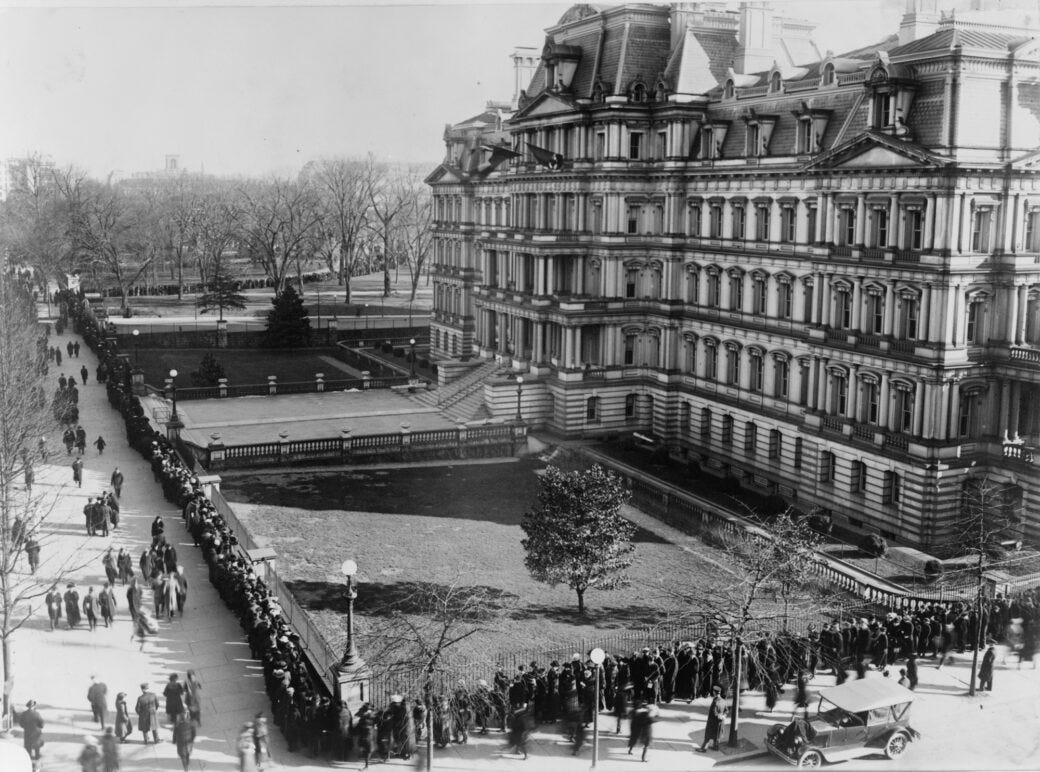Hey everyone,
Happy holidays to everyone celebrating the last few weeks! I hope you all had delightful days away from work to spend with loved ones. I’m currently in Texas with my family, but already eager to get back to California’s signature sunny warmth.
And since it’s almost New Years’— Happy New Year! Is anyone setting any interesting/fun resolutions for 2025? I am still thinking about mine, but I think getting ahead on my work (instead of working on everything at the last minute) is high on the list. If you’re setting a fun resolution—or one related to Substack or writing or history—I’d love to hear it!
Now, onto history acting unruly in the news…
Are NYE parties overhyped? For some (me) it may feel like an exhausting capper to an intense holiday season, but the passage from one year to the next has been an important ritual to humans for centuries. In fact, we’ve been marking the new year with festivals and parties since 2,000 BCE. Here are some ideas of how cultures have celebrated across time.
How did one Scottish poem become the most popular song to sing at midnight on NYE?
Did you know that the new year used to begin in March? Here’s why and a look at when it changed.
Today, the Lunar New Year (also known as The Spring Festival) still prompts mass migration—billions (yes, with a b) of people travel during the 40-day festival to celebrate a time of good luck with loved ones.
Starting in 1801, January 1 was Open House day at the White House. Presidents welcomed everyone from diplomats to regular Americans at the New Year’s Reception. The practice ended in 1932 with President Herbert Hoover.
Why did Hoover end it? Well, he’d lost his bid for re-election and the Great Depression was in full swing. It seems the tradition was simply too depressing for the family.

The line of the New Years’ Reception of 1922. Source: Library of Congress. Of course, there is a grimmer history of New Years’ Day: It was the day the most enslaved families were separated. Known still as Heartbreak Day, it was the day people sold off enslaved children or rented out enslaved adults.
Setting a new year’s resolution might seem kind of modern and self-obsessed, but the practice actually has 4,000 year old roots. From ancient Babylonian kings making promises to their populace to me promising to clean my cat’s litter more frequently, the new year has always been a time of self-reflection and promises for betterment. It’s a deeply ingrained human impulse.
Is one of your resolutions to get up earlier or establish a morning routine? Here are some of the routines of great historical figures.
If you’re an artist looking for artistic inspiration,
’s book Daily Rituals: How Artists Work is great inspiration for establishing your own routines. There’s also his companion book Daily Rituals: Women at Work.
If you’re struggling with long winter nights, here’s how humans have historically adapted to the long nights of winter. These habits are not a cure-all, but can you make this season 20% better for you?

Folks gathering at Stonehenge to observe the winter solstice. Source: Andrew Matthews, PA Images/Getty Images I feel like I saw less of the ‘cancelling Christmas’ narrative this year, but I just want to point out for the record: As far as I know, the only time Christmas has ever been ‘cancelled’ it was by Christians.
I did notice that American news outlets neglected to mention that Bethlehem was celebrating a muted Christmas—deemed “Christmas Under the Rubble”—in solidarity with Palestinians. (Bethlehem is often considered the birthplace of Jesus Christ and a geographic center for the faith.) They also explicitly equated the continuing Israeli attacks on Gaza with King Herod’s attacks on the Holy Family.
Of course, did King Herod really massacre baby boys in Bethlehem? Nope.
In 2024 reviews…
Shorter one this week as I’ve got to get back to my family! Happy New Year, everyone!




